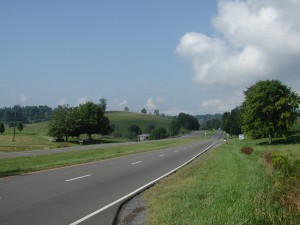 The United States has 2.2 million miles of paved roads, and about 94% of them are surfaced with asphalt. Asphalt pavements are and continue to be America’s pavement of choice.
The United States has 2.2 million miles of paved roads, and about 94% of them are surfaced with asphalt. Asphalt pavements are and continue to be America’s pavement of choice.
Today’s current national and local economic conditions – combining reduced funding with high infrastructure needs – have elevated the importance of prudent spending. Decision makers exercising good stewardship practices can easily justify their decisions and choices to their constituents. Good stewardship practices include a detailed, logical, and documented pavement type selection process that includes a life-cycle cost analysis as a key component.
Pavement Type Selection – PTS
Pavement type selection, or PTS, is the process that identifies the best pavement structure for a given application. Road agencies such as state DOTs and city/county public works departments use PTS processes, which may be as simple as specifying a certain type of pavement on the basis of traffic level, or as complicated as assigning weighting factors to more than a dozen characteristics and evaluating the outcome through a scoring system. The APA’s white paper on pavement type selection provides guidelines that agencies and others will find valuable.
Life-Cycle Cost Analysis – LCCA
The APA has developed life-cycle cost analysis software that uses the principles recommended by the Federal Highway Administration (FHWA) to compare the economics of alternative designs for a given road project. It’s easy to use, unbiased, and free. There are two versions: LCCA Original, a comprehensive program, and LCCAExpress, geared to less-complex projects. Both are available as free downloads.
Subtopics